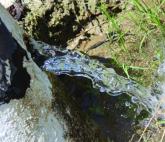Our company is one that has been built on generations of farming, and our future generations are looking forward to joining this heritage. We understand that in order to pass this heritage on to them, our generation must act responsibly towards our environment, starting with our own fields.
We do not grow organic, but we do use Integrated Pest Management (IPM) farming methods.Growing IPM means that we look for ways to keep our pesticide and chemical use as low as we can without endangering our crops. We are not certified organic because if a non-native pest comes into our region, we will not choose to risk the health of our orchards and our crop over removing the threat.
For more about IPM, check out our blog posts:
Sunlight is key to growing a great-tasting piece of fruit, but why stop at the growing stage? Our packing and cold storage facilities are being converted to solar power. And for an area that is not only sunny, but cloud-free approximately 194 days each year, we are sure to never run out of this abundant renewable energy source.
Water is a major concern for Californians. Farmers throughout our valley are dependent upon the state’s irrigation system to keep our land from turning back into a semi-arid grassland. This is particularly an issue along the western side of the valley, where our early season crops are grown. Certain areas in the valley also have very sandy soil, which increases the water intake for those regions. The water our state shares amongst its regions is vital for those living in our major cities, estuary health, as well as for agricultural purposes. We use root drip system irrigation in sandy soil regions to reduce our water usage - delivering water directly to each tree. For more information on the water crisis, see the California Water Alliance: http://www.californiawateralliance.org/the-water-crisis/



